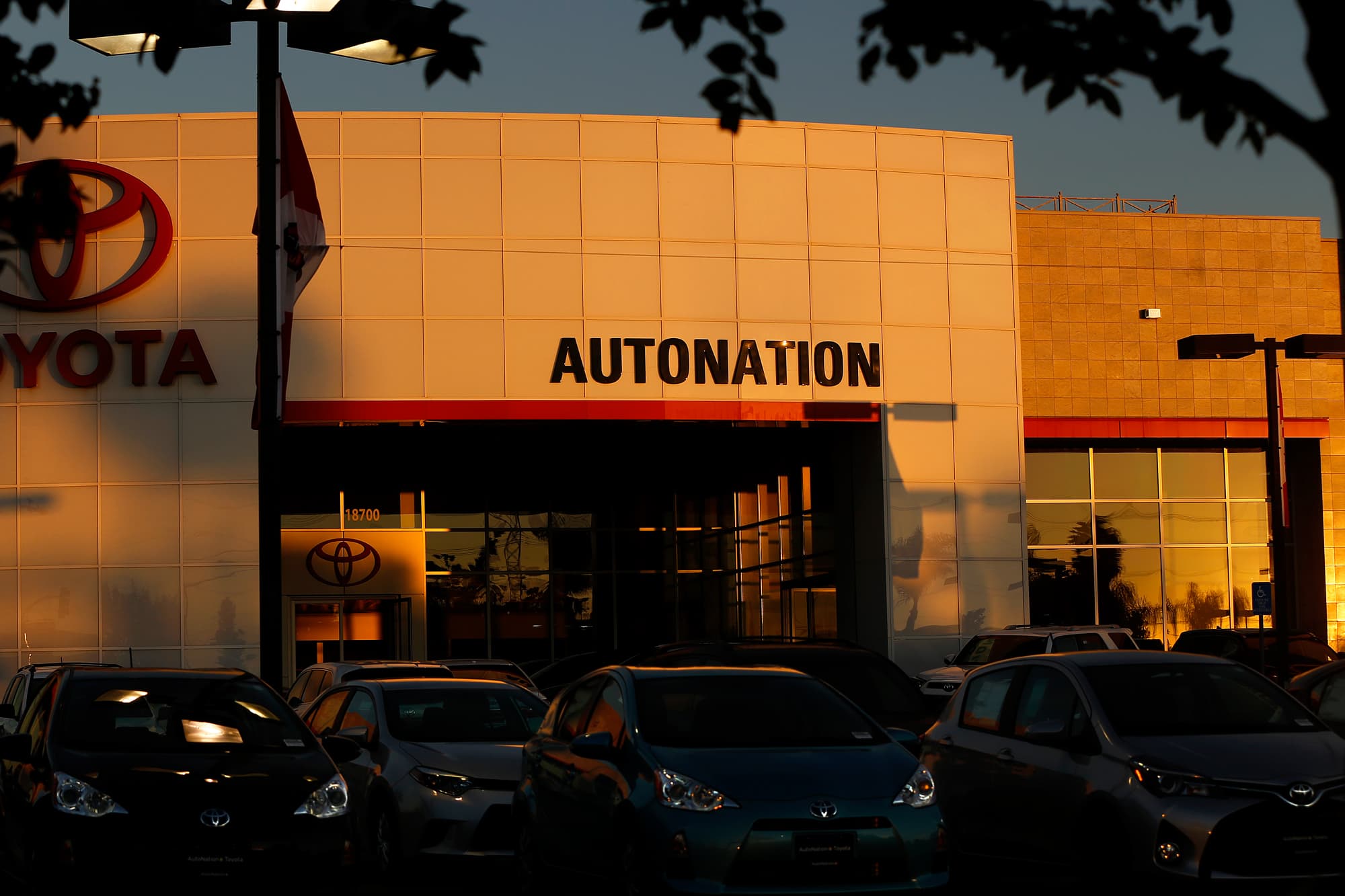AutoNation CEO Mike Jackson told CNBC the coronavirus pandemic has significantly shifted American attitudes toward personal vehicles, leading to the company’s blowout earnings report Wednesday.
“Coming out of the lockdowns, they said, ‘So much for sharing everything. I’d really like to have my own space that I define,'” Jackson said on “Squawk Box.”
The country’s largest auto dealership chain posted third-quarter revenues of $5.4 billion, eclipsing Wall Street forecasts of $5.19 billion. The company’s adjusted earnings per-share of $2.38 was an all-time record and topped expectations of $1.65.
“It’s our absolute best quarter ever,” Jackson said. “The demand for individual mobility has gone through the roof, and I think this pandemic/shelter in place has shifted the American psyche in a long-term way, and it’s hard to predict past five years, but for the next three to five years, there’s been a shift in demand,” he added.
Shares of AutoNation jumped nearly 8% in premarket trading. The stock was up nearly 30% year to date, as of Tuesday’s close. CNBC’s Jim Cramer said he’s not surprised by the strength in AutoNation stock Wednesday because during the pandemic, people have decided they want their own vehicles rather than carpooling or taking mass transit.
Surging auto demand is present across all price points and for both new and used vehicles, said Jackson, who also chairs AutoNation’s board. He added that the interest in buying cars has been buoyed by “incredibly low” interest rates, which makes financing the purchases more attractive.
Auto sales plummeted earlier this year as the coronavirus swept the U.S., with showrooms shutting down and consumers subject to stay-at-home orders. Inventories also have taken a hit as manufacturers shuttered plants.
While the sales figures have rebounded faster than expectations, Jackson said that AutoNation continues to face challenges on the supply side as production ramps back up.
“We made absolutely no progress in the third quarter. Our inventories are actually lower at the end of the third quarter than they were at the second quarter when it comes to new vehicles,” he said. “Industry inventories are still 25% to 30% below where they should be, if not even more, so it was challenging to adjust pricing to reflect the shortages.”
It showed up in AutoNation’s earnings. The company’s gross profits per new vehicle sold were higher by 56% at comparable stores compared to the same period last year. For used autos, that metric was up 43%.
Jackson said he believes inventories will “gradually improve” into next year, but added that the company will closely watch how that impacts its earnings.
“It’s always, as a retailer, a balance between pricing and volume, and we’re managing that well,” he said. “As the factories can do a bit better, we’ll adjust to that. But net net, we’ll either sell more volume and adjust pricing or the availability is not there and we’ll get it on the pricing side.”
